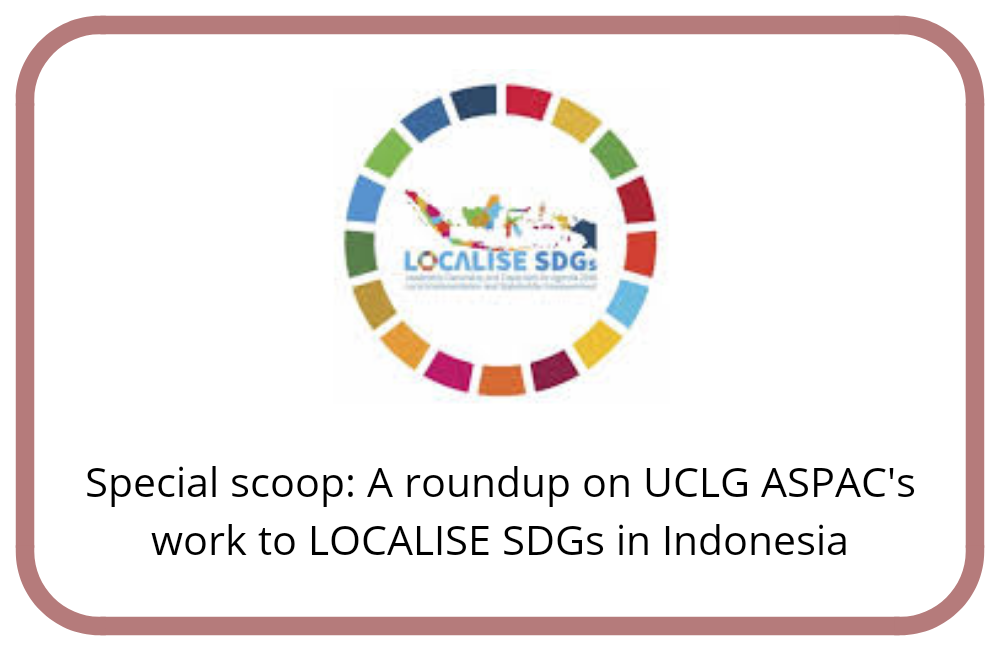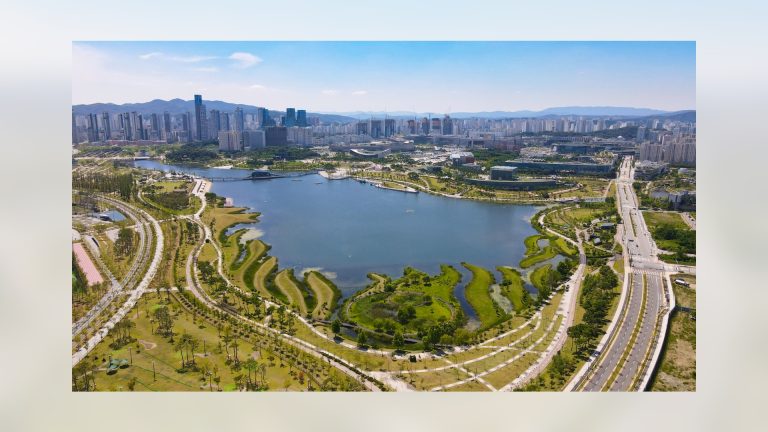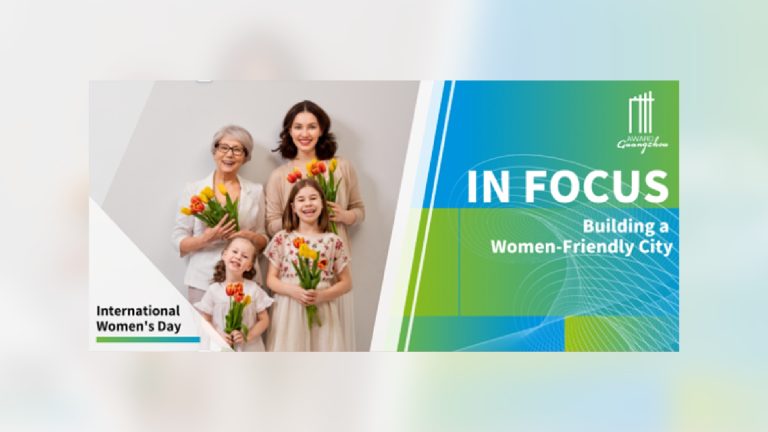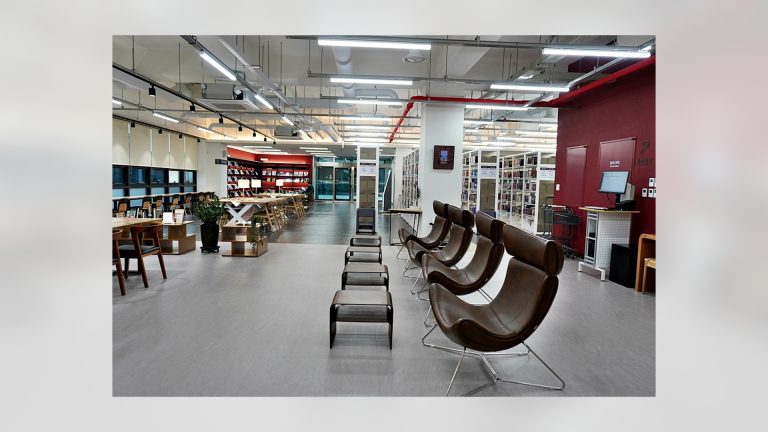Together with the Government of Indonesia and our partners, UCLG ASPAC made an inroad towards achieving the Sustainable Development Goals (SDGs) through our first flagship program; aimed specifically at localizing SDGs in 16 provinces and 14 cities throughout the country’s archipelagos.
The Sustainable Development Goals (SDGs) set an overarching framework for UN member states to work towards long-lasting benefits for their citizens and the global community. However, the SDGs’ 17 specific Goals cannot be realized without meaningful engagements with local governments which present a key pillar in the multi-stakeholder partnership worldwide.
This is particularly the case for countries like Indonesia – the 4th most populous nation, with 260 million populations living in more 542 districts/cities spreading throughout 17,000 islands. Recognizing the important connection between SGDs and national development, Indonesia took a significant step by enacting the Presidential Decree no. 59/2017 in July 2017. The Decree led to the establishment of the national governance structure and mechanisms for SDGs. It also underlines the indispensable roles of local governments in this endeavor, and assigns the National Planning and Development Ministry (BAPPENAS) to lead and link the Government’s SDGs implementation at both national and local levels.
In order to support Indonesia’s efforts in this regard, in July 2018 UCLG ASPAC launched a flagship project called LOCALISE – Leadership, Ownership and Capacity for Agenda 2030 Local Implementation and Stakeholders Empowerment (LOCALISE SDGs – Indonesia). The 3-year Project is implemented in partnership with BAPPENAS and the Association of Indonesian Municipalities (APEKSI), with the financial support from the European Union (EU).
LOCALISE SDGs Project directly contributes to Indonesia’s aim to scale up its SDGs-related work nationwide. Altogether 30 Local Governments (LGs) and 5 Local Government Associations (LGAs) are covered under the Project’s geographical scope. A series of various activities and advocacy campaigns, conducted at both national and local levels, aim to strengthen these LGs/LGAs’ technical and institutional capacities to promote sustainable development, particularly within the SDGs and national frameworks. These include LGs/LGAs preparedness to integrate the Goals, targets and indicators in their Local Medium-Term Development Plans, as required for by the abovementioned Presidential Decree.
Since its launch in July 2018, the Project quickly gained its traction through successful conducts of one national workshop and seventeen other trainings, participated by almost 900 participants, by the end of 2018. The training focus was modified according to local specific contexts, covering a broad-spectrum of SDGs: from an introductory level training to SDGs policy coherence, enabling environment, multi-stakeholder partnership and integrated assessment and system dynamics. Apart from BAPPENAS, the Project partnered up with various institutions to conduct its activities namely: Indonesia’s Ministry of Home Affairs, National Institute of Public Administration, GIZ Indonesia, SMERU research Institute, Indonesia Philanthropy and Center for Indonesia’s Strategic Development Initiatives (CISDI).
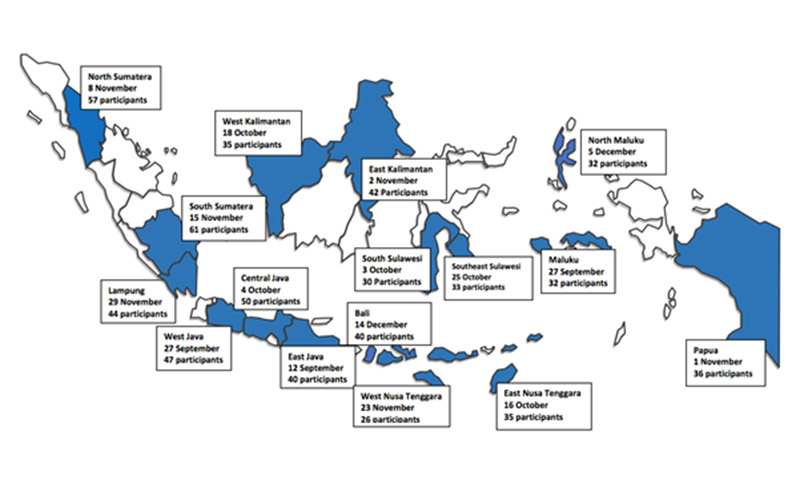
With the solid foundation laid during the beginning period, the Project is set to advance its progress in 2019. UCLG ASPAC will continue to work with LGs/LGAs and partners, both in and outside Indonesia, to reach our next milestones which include: the finalization of Local Action Plan on SDGs, enhanced multi-stakeholder partnership, and LGs’ enhanced contribution to the Voluntary National Report (VNR). The local wisdom and experience gained during the Project’s activities will also build upon our information products and knowledge-sharing platforms including the Project’s website: http://localisesdgs-indonesia.org and other social media platforms.
UCLG ASPAC looks forward to reinforcing this vital connection between the SDGs and Indonesia’s sustainable development, through our support to local leaders and authorities in ensuring that the benefits of any development agendas will truly reach citizens on the ground.








